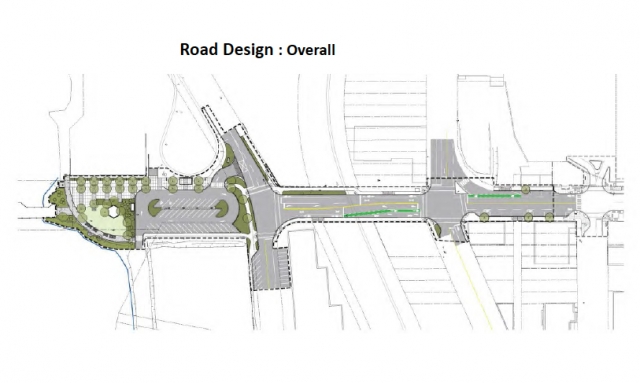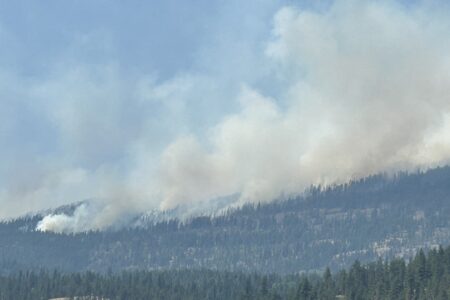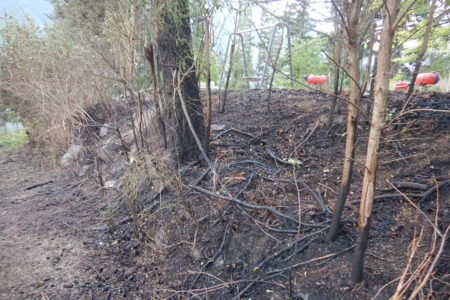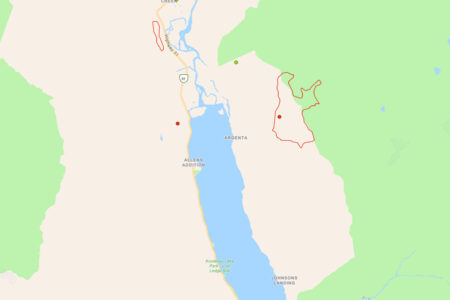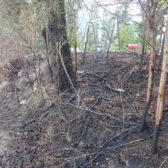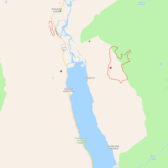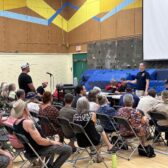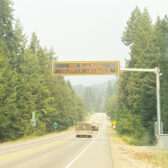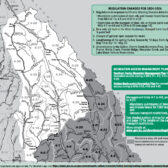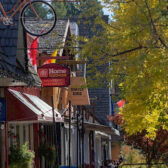Multi-million dollar Hall Street project’s phase two could begin in spring: consultant
When the calendar flips to 2017 the second phase of the multi-million dollar Hall Street project is expected to click into action.
The city has begun discussion with its consultant on the details and the timeline on how to pull off the $6.3-million project, with the start of construction (dependent on funding) earmarked for early April.
Kelowna’s WSP landscape architecture and urban design team — Rob Fershau and Avi Thiessen — apprised council at the one third mark of the draft detailed design phase for the project, and the design was well received.
“I really like that we are making it more pedestrian friendly, more bike friendly, all of those elements, all of those concepts and principles we had valued and are included in this design concept,” said Mayor Deb Kozak.
At the outset of the presentation she said the city was looking to see if the conceptual plan for phase two of Hall Street fulfilled the function of the consultation that has taken place so far in the community.
“And if the elements in this seem to fit, then we would go to the next phase which would be a more detailed plan, planning and fine tuning,” she said.
Council commented on the broad design guidelines and made its first decision on the project, electing to create a three-way intersection at the base of the street, eliminating the confusion of a parking lot entry to the Prestige at the Hall Street and Lakeside Drive intersection.
Moving the entranceway to the parking lot would create a strong gateway element to frame Hall Street and create a stronger, urban Hall Street Park with more trees and an expanded lawn area, said Fershau.
Once underway, the project will likely see infrastructure work to the extent of phase one — with water, sewer and fibre upgrades — as well as improvements to the storm water system. The area was prone to flooding during severe rainstorms.
The new park is expected to keep the gazebo structure but create a tiered area along the waterfront, with custom lighting and a waterfront walkway, keeping the existing wharf.
Some parking will be lost along Hall Street to incorporate bicycle lanes between Lakeside and Front, as well as the bio-swale — a system that moves water away from the intersection. In total, the 116 parking spaces — including 51 private spots — will be reduced by 28 along the length of the street.
“It is really a catalyst for exploration of the rest of the waterfront,” said Fershau. “We will know more about the fate of this park as we move forward.”
And as more development takes place on the waterfront other solutions at the intersection — including a traffic light — can be instituted, he said.
WSP is responsible for the planning and engineering work required to produce a detailed design of infrastructure upgrades for the Hall Street Corridor from Lake Street right through to the Government Wharf at the Prestige Lakeside Resort.
This project is expected to connect the downtown and the waterfront and will address a number of key issues or factors that include:
- traffic and pedestrian circulation
- improvements to storm water drainage and replacement of utilities
- parking
- streetscape improvements
- parks
- infill and redevelopment opportunities
- the railway crossing
- the highway crossing
- Streetcar number 23
- public art opportunities
It will also include short, medium and longer term opportunities to develop Hall Street into the “key connector” from the downtown to the waterfront.
The city will fund about one third of the project from its sewer and water budget, while the remainder could arrive in the form of a federal Build Canada grant — which has not yet been approved. If the city is unsuccessful in getting that grant, the project may be delayed. But otherwise, construction is expected to begin in 2017.
The project will be made public in February to gather comment with tender drawings finalized in early March, awarding the tender in late March. The schedule is also dependent upon approval of water systems by Interior Health, approvals by CPR, the Ministry of Transportation and the Ministry of Environment.



